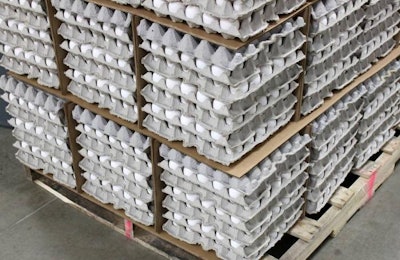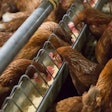
A change made to the U.S. Food and Drug Administration (FDA) Egg Safety Rule that allows producers who normally sell their eggs to the foodservice industry to sell them at the retail level does help the egg industry, but logistical problems still exist, a pair of Purdue University professors say.
Demand for eggs for the restaurant and foodservice industries have decreased dramatically since the COVID-19 pandemic began, while demand for eggs at the retail level has risen. The changes to the egg safety rule were made to help the producers sell those eggs they otherwise wouldn’t have had, but coming up with the cartons and shipping materials to move those eggs remains a challenge, Jayson Lusk, distinguished professor and head of the Purdue University Department of Agricultural Economics, said during the webinar, “COVID-19’s Impacts on U.S. Food and Agriculture,” held on April 20.
Lusk explained that eggs destined for restaurants are shipped “on big pallets,” and are not in the typical cartons people are used to seeing in the grocery store.
“Even if you are allowed to do it, you still need more cartons to move those eggs,” Lusk said. “You don’t just have a bunch of empty cartons around unless you need them.”
He said that is just one example of how complex the food system is and how the COVID-19 pandemic is impacting the supply chain. He added that most companies “can accommodate a gradual shift, but when you try to shift the entire system overnight, it becomes almost impossible.”
Lusk added that egg producers can make the investment to change its system for retail sales, but if the demand shift from foodservice to retail only lasts a few more weeks, it may not be worth it.
James Mintert, professor and director of Purdue’s Center for Commercial Agriculture, agreed with Lusk, saying: “In some cases, if you do want to make the switch, it’s going to take several months perhaps to make that investment and make it operational.”
During the webinar, Lusk and Mintert also discussed the impacts on the industry when pork plants stop production.
View our continuing coverage of the coronavirus/COVID-19 pandemic.


















